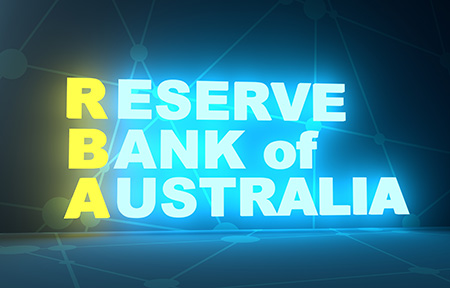RBA Rate Cuts Unlikely to Stimulate Our Economy

By Dale Gillham |
It was no surprise that the RBA cut interest rates to a record low of 1.25 per cent with the intention of stimulating the economy. But was this the right decision?
We all know that a lower cash rate means it is cheaper to borrow money and while in theory this sounds great, it can also be very dangerous. In essence, lowering interest rates encourages people to borrow more, so they spend more and hopefully stimulate the economy. But is borrowing more really the answer?
Australian debt levels are too high
If we look at the debt levels for Australians, we know that as a society we borrow too much given that we are already heavily in debt.
The Australian household debt-to-GDP ratio is the second highest in the world next to Switzerland, and like Switzerland we are in the top ten most expensive countries to live, especially when it comes to housing affordability. For years we have made borrowing too easy, which has resulted in an overpriced housing market that has also subjected many to mortgage stress.
While a drop in interest rates may help those in mortgage stress to relieve some pain, it certainly won’t stimulate them to spend. On the flip side, why would we want to encourage people to borrow more, especially when we know the stress and damage that high debt levels can have on families, and particularly when our housing market is still way over valued.
If you look at the total debt, on average Australians owe over $430,000 per person (not including children) with over $10,000 attributable to personal or credit card debt, which is an alarmingly high number.
Australia is experiencing flat wages growth and increasing costs of living, especially in areas related to non-discretionary spending, such as electricity, insurance and healthcare. This means Australians are continuing to spend a higher percentage of their income just to survive. What’s even more concerning is that the average overall household savings reduces the more we spend, which means we experience more financial stress?
Will lowering interest rates stimulate the economy?

The question that has to be asked is will lowering interest rates get the economy moving? I don’t think so because the issues are far more entrenched than that. We need to change the bad habits that the excesses of the 80’s started and we need to get back to basic sound money management rules, so Australians break this ever-increasing debt cycle. Unfortunately, there is always an inevitable end when countries, businesses and individuals borrow too much, and it’s not pretty.
So how can Australians make the most of this current rate reduction? The simple answer is to pay down debt with the excess funds. In addition, regardless of what’s happening in the economy there will always be opportunities in the stock market to increase your wealth, so using any excess cash to buy growth assets likes stocks will support you to get out of debt faster, which is always a good idea.
What have been the major moves in the Australian stock market?
Turning to the market this week, the top performing sectors in the All Ordinaries Index was Utilities up nearly 3 per cent, while Financials, Consumer Discretionary and Industrials were just in the green. Energy, Information Technology and Healthcare where the worst performing sectors all down over 1.5 per cent.
In the top 200 stocks, Eclipx Group (ECX) was the top performer up 20.54 per cent following the release of its half yearly results. While the results weren't anything to get excited about, they were above market expectations. Next on the list is Wisetech and Abacus both up nearly 8 per cent for the week.
Following its stellar rise last week on news of a takeover from a Swedish private equity firm, Vocus Group fell heavily down by 17.86 per cent after the takeover offer was withdrawn. Syrah continued its downward spiral falling around 17 per cent and Bravura was down 13 per cent on news that it may now cost the company more to take over financial industry tech company GBST.
So what do we expect in the market?
While the market was down earlier in the week, it is holding up in a sign that it just does not want to fall away. What happens over the next week will tell us if the market will fall into July or continue to rise. If the ASX 200 rises, then we should see a sustained rise through until July and possibly a new all-time high. If it falls, then we are likely to see the market move down to between 6224 and 6100 points. That said, I still expect the Australian stock market to be trading at higher levels by the end of the year.
So let’s get into this week’s stocks of interest. Watch the video to find out more.
Good luck and good trading!
Dale Gillham is Chief Analyst at Wealth Within and international bestselling author of How to Beat the Managed Funds by 20%. He is also author of the award winning book Accelerate Your Wealth—It’s Your Money, Your Choice, which is available in all good book stores and online.